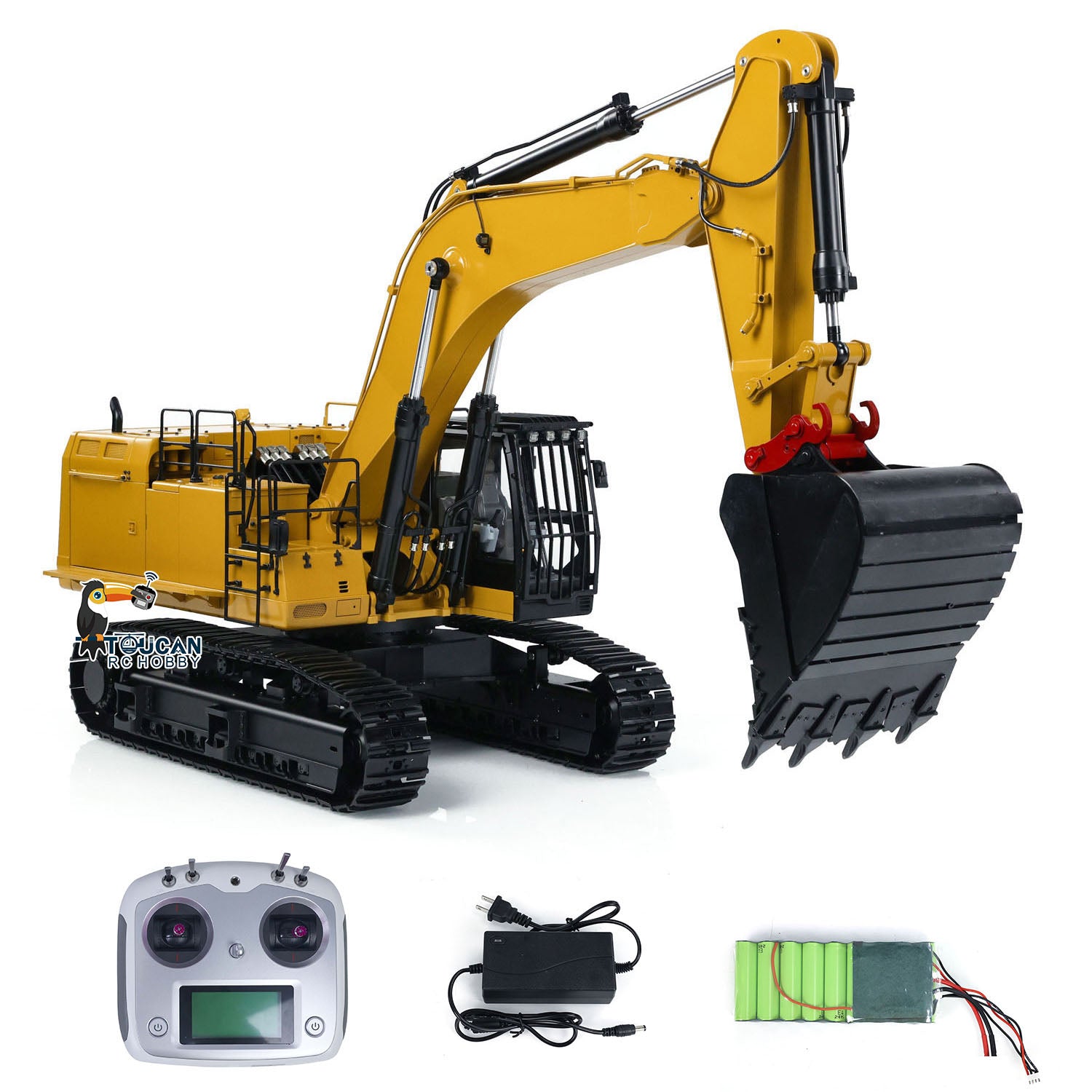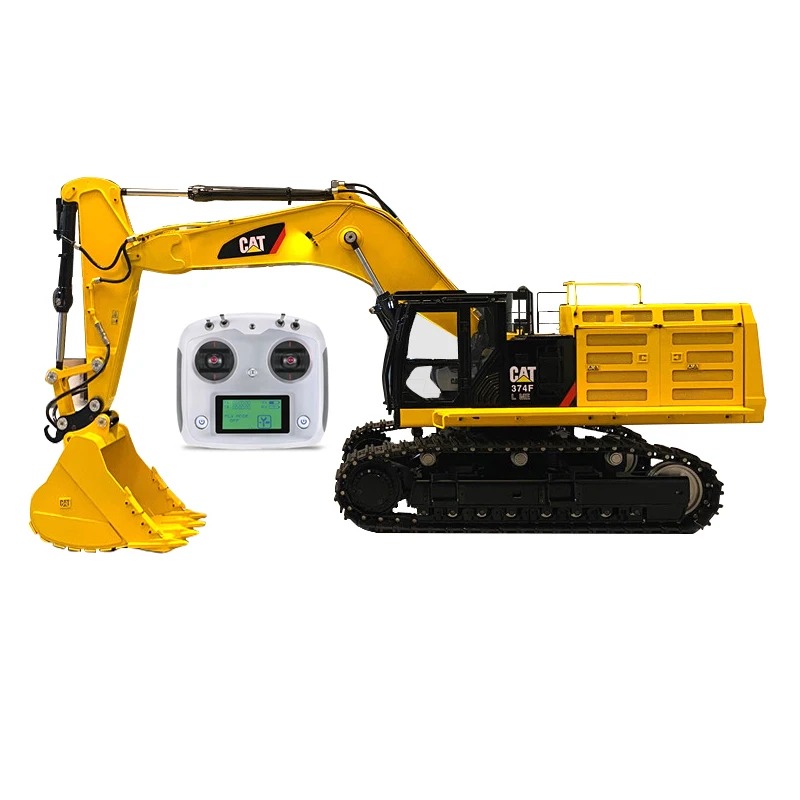Comprehending How Excavator Works and Its Influence On Performance
Excavators play a vital duty in building and mining operations, depending on an intricate interaction of hydraulic and mechanical systems. Their capability to perform a range of jobs rests on both their layout and the modern technology integrated within. Comprehending these components can substantially impact operational performance and performance. As improvements remain to reshape the market, one should think about just how these changes will certainly affect future techniques and performance.
The Essentials of Excavator Mechanics

The Duty of Hydraulic Equipments in Excavators
At the heart of excavator procedure lies the hydraulic system, which plays a pivotal role in powering the maker's functions and motions. This system makes use of pressurized hydraulic fluid to transfer energy, making it possible for numerous actions such as moving, excavating, and training. By utilizing the concepts of hydraulics, excavators can execute jobs with remarkable accuracy and force, improving general operational efficiency.The hydraulic system consists of crucial elements, consisting of pumps, cylinders, and valves, which collaborate to manage the circulation and direction of the fluid. When the operator engages the controls, the hydraulic fluid is routed to details cylinders, converting the driver's commands into physical activity. This system enables responsive and smooth actions, which are vital in building and excavation environments. double e volvo rc excavator. The effectiveness of the hydraulic system straight influences the productivity and adaptability of the excavator, making it an essential element in modern-day excavation procedures
Trick Parts of an Excavator
Understanding the key parts of an excavator is necessary for comprehending exactly how this powerful device runs. An excavator contains a number of significant elements, consisting of the undercarriage, home, arm, bucket, and boom. The undercarriage provides security and wheelchair, typically featuring wheels or tracks to navigate numerous surfaces. Your home contains the engine and hydraulic systems, enabling the driver to control activity and power the device. The boom expands from your house, enabling upright reach, while the arm connects to the bucket, assisting in excavating and lifting operations.Additionally, the taxicab houses the driver, geared up with controls for exact maneuvering. Each of these elements plays a crucial function in the excavator's total performance, adding to its effectiveness and efficiency on construction websites. Recognizing these parts helps in optimizing and keeping excavator efficiency, making certain tasks are finished securely and efficiently.
Add-on Versatility and Its Benefits
Add-on versatility is a necessary facet of excavators, making it possible for drivers to switch between various tools tailored for details tasks. This adaptability not only improves work performance but also adds to cost-effectiveness by lowering the demand for multiple machines. Comprehending the different sorts of add-ons offered can considerably affect the general performance and performance of an excavator on task sites.
Sorts of Accessories
While excavators are mainly acknowledged for their excavating abilities, their real adaptability depends on the large variety of accessories available. These attachments boost the excavator's performance, enabling it to carry out various jobs past excavation. Typical add-ons include containers (for digging and scooping), hydraulic thumbs (for grasping products), and augers (for piercing holes) Grapples are used for relocating and dealing with debris, while rippers can separate difficult surface areas. Other specialized attachments, such as plates and rakes, enable excavators to adjust to specific work needs. This diversity not only boosts the maker's energy across various markets, including landscape design, building, and demolition, but also permits drivers to tailor their tools to fulfill certain job demands efficiently.
Increased Work Effectiveness
Making the most of job performance is a main advantage of making use of numerous excavator accessories. Various attachments allow an excavator to carry out several jobs without needing to change tools, saving beneficial time and labor. As an example, making use of a hydraulic hammer can break concrete while a container accessory can dig deep into dirt, enabling a seamless process. This convenience decreases downtime connected with tools changes and improves efficiency on-site. In addition, specialized attachments improve precision in jobs such as grading or landscape design, resulting in higher high quality end results. The capacity to adjust to numerous work requirements not just streamlines operations however additionally decreases the demand for additional machinery, guaranteeing that jobs are finished quickly and properly. Generally, accessory convenience substantially adds to boosted task effectiveness in excavation work.
Cost-Effectiveness and Versatility
Cost-effectiveness is a considerable advantage of using functional excavator add-ons. These add-ons permit a single excavator to carry out several jobs, minimizing the need for additional equipment and labor - double e volvo rc excavator. By changing in between pails, hammers, and grapples, operators can deal with numerous tasks, from digging to demolition, thus optimizing equipment usage. This flexibility not just lowers functional prices however also minimizes downtime related to transforming devices. Additionally, the capacity to personalize excavators with specialized attachments enhances performance, as they can effectively handle varied tasks according to project needs. In conclusion, the combination of cost-effectiveness and convenience in excavator accessories adds to boosted functional efficiency and source appropriation in building and excavation internet projects

Advanced Innovation in Modern Excavators
Modern excavators are significantly furnished with advanced technology you can look here that changes excavation processes. Automation enhances operations, while enhanced gas effectiveness reduces functional costs. In addition, clever control systems enhance accuracy and security, noting a substantial evolution in excavation tools.
Automation in Excavation Processes
As excavation innovation evolves, automation has actually emerged as an essential element in boosting effectiveness and accuracy on job websites. Modern excavators are geared up with innovative automated systems that assist in jobs such as grading, digging, and trenching with marginal driver intervention. These systems make use of sensors, GPS, and equipment discovering formulas to ensure exact positioning and deepness control, significantly reducing the margin for error. In addition, automation enables drivers to focus on calculated decision-making rather than hands-on controls, bring about enhanced efficiency in general. Such innovations not just streamline process yet also enhance security by minimizing human error in complicated procedures. The assimilation of automation in excavation processes stands for a considerable development in building modern technology, driving the sector towards higher effectiveness and performance.
Boosted Fuel Efficiency
Improvements in modern technology have actually additionally resulted in considerable improvements in fuel effectiveness for contemporary excavators. Modern makers are outfitted with innovative engines that maximize power outcome while minimizing fuel consumption. These engines use ingenious combustion technologies, such as turbocharging and direct gas shot, to improve performance and efficiency. In addition, light-weight materials in construction reduce total weight, permitting for much less energy expense throughout operation. The intro of variable rate controls enables drivers to readjust engine performance according to specific jobs, additionally reducing fuel usage. As an outcome, these enhancements not just lower functional prices yet additionally add to environmental sustainability by lowering exhausts. On the whole, enhanced gas performance in excavators is an important growth that boosts productivity and financial feasibility in the construction sector.
Smart Control Systems
While drivers navigate significantly complicated work sites, click site clever control systems in excavators have become vital devices for enhancing effectiveness and precision. These sophisticated technologies make use of sensors and algorithms to keep track of numerous parameters such as lots weight, surface conditions, and functional efficiency. By automatically changing hydraulic features, smart systems maximize machine performance, causing boosted productivity and minimized endure components. Furthermore, drivers gain from intuitive interfaces that give real-time feedback and diagnostics, allowing for notified decision-making. This combination of innovation not just streamlines operations however likewise decreases human error, contributing to much safer workplace. As the construction industry continues to progress, clever control systems will play an essential role in forming the future of excavator efficiency and efficiency.
Enhancing Functional Efficiency With Excavators
Excavators play a necessary duty in boosting functional performance across different building and construction and excavation projects. Their versatility enables several jobs, consisting of training, digging, and product handling, which streamlines workflows and lowers the need for added tools. With effective hydraulic systems, excavators can execute sturdy tasks with precision, significantly decreasing the time needed to total projects. The assimilation of innovative modern technology, such as GPS and automated controls, even more enhances their operation, enabling drivers to accomplish greater accuracy and lower material waste. Additionally, modern-day excavators are created to consume much less gas and lessen discharges, adding to both price savings and environmental sustainability. By using excavators efficiently, construction groups can improve performance, meet task due dates, and boost general site administration. This multifunctionality and effectiveness make excavators vital tools in the modern-day building landscape.
The Future of Excavators in Construction and Mining Industries
As the building and mining industries advance, the future of excavators is poised for substantial change driven by technical innovation and altering functional demands. Breakthroughs in automation and synthetic knowledge are reshaping excavator abilities, permitting for enhanced precision and performance in operations. Autonomous excavators are arising, lowering the requirement for human treatment and reducing the danger of accidents.Moreover, the assimilation of telematics and IoT technology allows real-time surveillance of machine performance and predictive upkeep, maximizing uptime. Environmentally friendly styles, consisting of electrical and hybrid models, are acquiring traction, straightening with sustainability objectives within the industry.Additionally, using sophisticated products and lighter layouts boosts fuel efficiency while preserving efficiency standards. As these patterns development, excavators will certainly play a crucial role in meeting the increasing demands for efficiency and security in building and construction and mining, eventually changing functional landscapes.
Often Asked Concerns
Just How Do Climate Condition Impact Excavator Performance?

Climate condition significantly affect excavator performance, as rain and mud can prevent traction and security, while extreme temperatures might affect hydraulic systems. Operators has to adjust to these variables to guarantee excellent performance and security throughout procedures.
What Precaution Should Operators Comply With While Using Excavators?
Safety and security steps for excavator drivers include putting on suitable individual protective equipment, carrying out pre-operation inspections, making sure proper interaction with ground personnel, keeping a safe range from overhead dangers, and adhering to well-known operational procedures to prevent mishaps.
How Usually Should Excavators Be Preserved for Optimum Performance?
Excavators need to be maintained regularly to guarantee peak efficiency, generally every 250 operating hours or as specified by the manufacturer. Routine checks boost reliability, avoid unforeseen malfunctions, and prolong the life-span of the tools.
What Is the Ordinary Lifespan of an Excavator?
The typical life-span of an excavator normally varies from 10,000 to 15,000 hours of operation. Factors influencing durability include maintenance methods, running problems, and the quality of the maker itself, influencing overall productivity and effectiveness.

Can Excavators Operate on Unequal Surface Efficiently?
Excavators can run effectively on uneven terrain because of their verbalized styles and flexible tracks. These attributes permit them to maintain stability and traction, enabling efficient operation in challenging settings commonly experienced in building and construction and landscape design projects. Each of these elements plays a crucial role in the excavator's overall functionality, contributing to its efficiency and performance on building and construction websites. Making the most of job efficiency is a key benefit of making use of different excavator accessories. While operators navigate progressively intricate work websites, clever control systems in excavators have actually arised as important tools for improving efficiency and accuracy. Excavators play a crucial function in improving operational performance throughout various construction and excavation tasks. Developments in automation and synthetic intelligence are improving excavator capabilities, allowing for enhanced accuracy and performance in procedures.
Comments on “Understanding the Key Features of the rc excavator for Modern Construction”